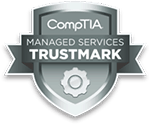 With the growing amount of data which every company generates today, most of which is being saved on computers, on servers and in the cloud, it’s no wonder you may be concerned about how to ensure that this valuable information is safe and secure. Hard copies are no longer something that companies care to print out, review and store, so it is essential that your business has a solid plan for preventing data loss and for reconstructing it if the worst happens.
With the growing amount of data which every company generates today, most of which is being saved on computers, on servers and in the cloud, it’s no wonder you may be concerned about how to ensure that this valuable information is safe and secure. Hard copies are no longer something that companies care to print out, review and store, so it is essential that your business has a solid plan for preventing data loss and for reconstructing it if the worst happens.
Kinds of Loss to Consider
Hard Drives
Failure of a hard drive or drive is a constant worry for the business owner. If you are keeping client records, financial reports and other items in house on your own computers you are vulnerable to this type of loss. Losing this kind of data can send your business into a tail spin, and employing the kind of people who can recover the information will be essential and quite expensive.
The time your system is down as you recover from this sort of loss is also a real problem. Your staff will fall behind on other tasks the longer the system is unavailable.
Mobile Devices
If your staff are using cell phones, tablets and laptops to access your data, a fair amount of critical information may be at risk if these devices are lost, stolen or simply neglected. Regardless of whether these portable computing tools are the property of the company or your employees, if they are used for the day-to-day business of the company you are vastly increasing your exposure to data loss.
If you are using a cloud-based server to increase work-time flexibility for your staff, you have another layer of concern. Specifically, you need to have faith in the security systems of your cloud servers even as your employees and you yourself use this rapidly evolving technology and a variety of platforms.
Prevention is the Solution
Off Site Storage
Although it can make some individuals uneasy, one way to add layers of security to your data storage is to move it to off-site servers. This approach means that the data is still yours but is found on equipment away from your site. You may be sharing the server with other businesses, but the provider will work with you to ensure only you and your specified staff and consultants have access to your data.
Backing up data cannot be emphasized enough. Work with experienced consultants to make sure you have a plan to back up all essential information and be certain that the procedure is done consistently.
Encryption
When storing data be sure you are using appropriate encryption software that protects device to device transfer and transfers between the devices and the server. If you are not fully familiar with the way the various kinds of data can be protected by encryption, be sure you have IT staff who are competent in that area to assist you in developing systems that provide the necessary levels of security.
You also need to ensure that proper password protocols are in place to keep the data that does not necessarily move off a device safe. Train staff to choose robust passwords and change them frequently.
Access Levels
Carefully consider what level of access different staff members have to your data. You also need to instruct staff on confidentiality. Have agreements signed and be prepared to enforce them if an employee breaches security.




